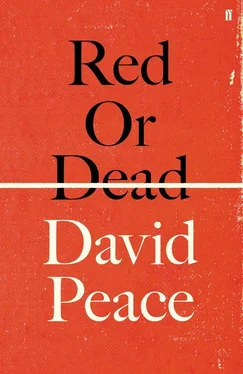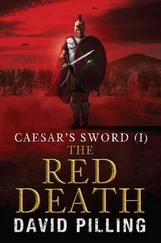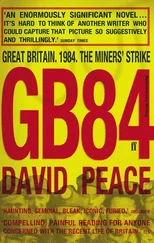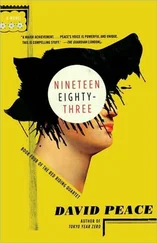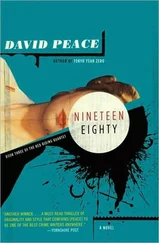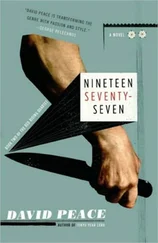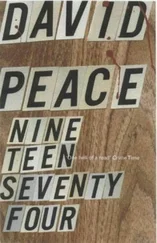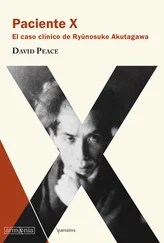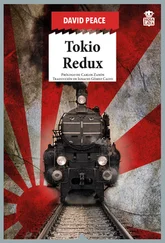…
After, later. Liverpool Football Club beat Leicester City one — nil and Liverpool Football Club beat Blackburn Rovers four — one. Then they beat Sunderland Football Club four — nil and then they beat Blackpool Football Club four — one.
On Saturday 26 February, 1966, Liverpool Football Club travelled to Craven Cottage, London. Fulham Football Club were bottom of the First Division. Liverpool Football Club were top of the First Division. That afternoon, thirty-one thousand, six hundred and twenty-six folk came, too. Thirty-one thousand, six hundred and twenty-six folk to watch bottom versus top. Last play first. That afternoon, Ian St John punched Mark Pearson. St John hit Pancho Pearson with a left hook. St John was sent off. And that afternoon, Liverpool Football Club lost two — nil to Fulham Football Club. Away from home, away from Anfield. The bottom had beaten the top, the last had beaten the first.
…
After the dismissal, after the defeat. At Lancaster Gate, in London. At the headquarters of the Football Association. Bill Shankly and Ian St John walked past the FA Cup. The FA Cup on display, in safe keeping. Bill Shankly and Ian St John sat down in the corridor at Lancaster Gate. Bill Shankly in his best suit and red tie, Ian St John in his best suit and red tie –
Come!
Bill Shankly and Ian St John stood up. Bill Shankly and Ian St John adjusted their red ties. Bill Shankly and Ian St John stepped through the door, into the room. And the head of the FA Disciplinary Panel said, Sit down, Shankly. Sit down, St John.
Bill Shankly and Ian St John walked down to two chairs at the end of a long table. Bill Shankly and Ian St John sat down in the two chairs at the end of the long table. Bill Shankly and Ian St John looked up the long table at the members of the Disciplinary Panel. And the head of the Disciplinary Panel said, Well then, what do you have to say for yourselves? In answer to the charge of violent conduct?
Plenty, said Bill Shankly. Because I have evidence to present to you which I believe will prove the innocence of my player. Evidence that will exonerate him. This evidence is on film. And so, as you are aware, I have arranged to show you a film. To prove the innocence of my player. And to exonerate him of the charge against him.
The head of the Disciplinary Panel said, Go on then, Shankly, show us this little film of yours then.
Bill Shankly got up from his chair at the end of the long table. Bill Shankly walked over to the wall. Bill Shankly switched off the lights. Bill Shankly walked over to the projector. Bill Shankly started the projector. And Bill Shankly showed his little film. His film which showed Mark Pearson of Fulham Football Club pulling the hair of Ian St John of Liverpool Football Club. His film which showed Ian St John turning around and punching Mark Pearson. His film which showed Ian St John hitting Pancho Pearson with a left hook. His film which then showed Ian St John being ordered off the field of play.
After his film, Bill Shankly stopped the projector. Bill Shankly walked back over to the wall. Bill Shankly switched back on the lights. But Bill Shankly did not sit back down in his chair at the end of the long table. Bill Shankly paced the room. The courthouse –
As you can clearly see, said Bill Shankly. See as clear as day. My player was clearly provoked by the ungentlemanly and unsporting behaviour and conduct of the other player, of the Fulham player. And as I am sure you will all agree, such behaviour, such conduct has no place in the game, in the modern game of football. My player was clearly provoked. My player then simply reacted. And so the charge against him is unfair. The suspension unjust. The most unfair and most unjust in the history of the world. Because my player is an innocent man. The most innocent man in the history of the world!
The members of the Football Association Disciplinary Panel looked down the long table at Bill Shankly and Ian St John. The members of the Football Association Disciplinary Panel shook their heads. And the head of the Football Association Disciplinary Panel said, The Football Association will not tolerate violent conduct on the football pitch. The charge is justified. The suspension stands –
Close the door on your way out, Shankly.
Bill Shankly and Ian St John walked back to the door. Bill Shankly and Ian St John stepped through the door, into the corridor. Bill Shankly and Ian St John closed the door behind them. Bill Shankly and Ian St John walked down the corridor, past the FA Cup, into the street. Bill Shankly and Ian St John stood on the pavement outside the headquarters of the Football Association. And Ian St John said, I am sorry, Boss. I am very sorry …
And so you should be, said Bill Shankly. Next time you make sure you get your retaliation in first. When the referee is not about. So the other feller knows you are about. And then he’ll keep away from you. Because he won’t fancy another taste. Another taste of that retaliation. So just remember, son. Always get your retaliation in first.
…
On Monday 28 February, 1966, Liverpool Football Club flew to Brussels, Belgium. Then Liverpool Football Club flew to Cologne, West Germany. Then Liverpool Football Club flew to Budapest, Hungary. To the City of Football, the home of Honvéd Football Club. Honvéd Football Club were the Hungarian Army football team. Ferenc Puskás, Sándor Kocsis, József Bozsik, Zoltán Czibor, László Budai, Gyula Lóránt and Gyula Grosics had all once played for Honvéd Football Club. These players had been the nucleus of the Mighty Magyars. In 1953, the Mighty Magyars beat England 6–3 at Wembley Stadium. In 1954, the Mighty Magyars beat England 7–1 at the Népstadion, Budapest. On Tuesday 1 March, 1966, Liverpool Football Club came to the Népstadion, the People’s Stadium, to play Honvéd Football Club in the first leg of the Second Round of the European Cup Winners’ Cup. That evening, sixteen thousand, one hundred and sixty-three folk came, too. Under giant floodlights, before an electric scoreboard. In a stadium that could seat one hundred thousand folk. To a constant chorus of shrill whistles, against a talented but inexperienced Honvéd side. On a perfect pitch, in an all-white strip. Liverpool Football Club drew nil — nil with Honvéd Football Club in Budapest, Hungary. The City of Football.
One week later, Honvéd Football Club travelled to Anfield, Liverpool. To another City of Football, to the New City of Football. That evening, fifty-four thousand, six hundred and thirty-one folk came, too. In the twenty-eighth minute, Callaghan won a corner. The corner was cleared. Thompson crashed the clearance against the post. And Lawler headed home the rebound. In the forty-seventh minute, Callaghan won another corner. Callaghan took a short corner to Thompson. Thompson crossed the ball. The ball eluded a line of Honvéd defenders. But at the end of the line, from the sharpest of angles, St John headed home the ball. And Liverpool Football Club beat Honvéd Football Club two — nil in the second leg of the Second Round of the European Cup Winners’ Cup. That night, Liverpool Football Club were through to the semi-final of the European Cup Winners’ Cup. In the semi-final of the European Cup Winners’ Cup, Liverpool Football Club would play the Celtic Football Club. Away and then home. Folk had hoped this tie might be the final, folk had dreamt this tie might be the final. But it was still a dream tie. The tie all of Britain had been hoping for, the tie all of Britain had been dreaming of. The tie Bill Shankly had been dreaming of, the tie Bill Shankly had been praying for. One of his dreams, one of his prayers. His many dreams, his many prayers.
…
On Thursday 14 April, 1966, Liverpool Football Club travelled to Parkhead, Glasgow. That night, seventy-six thousand, four hundred and forty-six folk came, too. Seventy-six thousand, four hundred and forty-six folk to watch the leaders of the Scottish First Division play the leaders of the English First Division in the first leg of the semi-final of the European Cup Winners’ Cup. Seventy-six thousand, four hundred and forty-six folk to watch the Celtic Football Club versus Liverpool Football Club. At Parkhead, in Glasgow. Seventy-six thousand, four hundred and forty-six folk in full voice, in full cry. Their war cry: CEL-TIC! CEL-TIC! CEL-TIC! CEL-TIC! CEL-TIC! CEL-TIC! CEL-TIC! CEL-TIC! CEL-TIC! CEL-TIC! CEL-TIC! CEL-TIC! CEL-TIC! CEL-TIC! CEL-TIC!
Читать дальше
